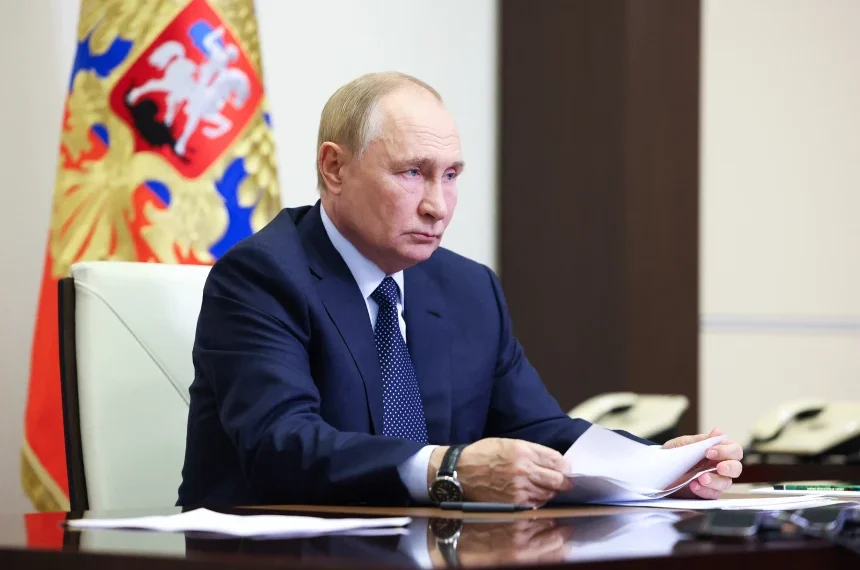Putin’s Nuclear Doctrine Shift: An Escalation or Just Empty Rhetoric?
Russian President Vladimir Putin has introduced a significant amendment to Russia’s nuclear doctrine, signaling a new layer of tension in its standoff with Ukraine and the West. The updated policy permits the use of nuclear weapons in response to attacks by non-nuclear states—such as Ukraine—if they are supported by nuclear-armed allies like the United States. While this move might appear to lower the threshold for nuclear action, world leaders and analysts remain largely unconvinced of its immediate threat.
A Calculated Signal?
The timing of this announcement was notable, coinciding with Ukraine’s first use of U.S.-supplied long-range ATACMS missiles against Russian targets. Observers suggest this may have been a calculated response to Western military support for Ukraine. However, experts argue that this policy adjustment is more about deterrence and propaganda than a genuine shift in nuclear strategy.
Global Reactions
Western leaders have downplayed the implications of this doctrinal shift:
- U.S. Defense Secretary Lloyd Austin said there was no evidence of any imminent Russian nuclear deployment, emphasizing that the U.S. remains vigilant but unmoved by “saber-rattling.”
- British Prime Minister Keir Starmer labeled Russia’s threats as “irresponsible rhetoric,” affirming unwavering support for Ukraine.
- French Foreign Minister Jean-Noel Barrot dismissed the change as a political move, stating, “We are not intimidated.”
- EU Foreign Policy Chief Josep Borrell condemned the threat as “completely irresponsible.”
Experts Weigh In
Many analysts view the doctrine update as a continuation of Russia’s longstanding efforts to influence Western policy through intimidation:
- Keir Giles from Chatham House believes this adjustment aligns with Moscow’s attempts to deter the U.S. from further supporting Ukraine.
- William Alberque, a former arms control expert, noted that the ultimate decision to deploy nuclear weapons remains solely in Putin’s hands, making these changes largely symbolic.
Russia’s Threats Intensify
Kremlin officials and Russian advocates have echoed dire warnings tied to the doctrine:
- Sergei Naryshkin, head of Russian intelligence, warned NATO allies that aiding Ukraine in long-range strikes could provoke serious retaliation.
- Dmitry Medvedev, former Russian President and current deputy chair of Russia’s Security Council, escalated tensions further, suggesting that NATO-backed missile attacks on Russia could trigger a nuclear response and even World War III.
Strategic Gamble or Empty Bluff?
Despite the heightened rhetoric, analysts argue that a nuclear strike remains unlikely due to strategic and political risks:
- Pavel Podvig, an expert on Russia’s nuclear forces, noted that deploying nuclear weapons would offer little military advantage and could alienate Russia’s allies, leading to severe global consequences.
- Podvig added, however, that the unpredictability of the Kremlin means the possibility cannot be entirely dismissed.
A Propaganda Tool
Ultimately, Putin’s doctrine adjustment seems to serve more as a psychological weapon aimed at undermining Western resolve. With the war in Ukraine grinding on, Russia’s attempt to capitalize on nuclear fears may be less about military strategy and more about influencing global narratives.
Conclusion
While the risks of escalation remain real, experts and global leaders are clear-eyed about the limited immediate impact of Russia’s revised nuclear policy. The West’s collective resolve to support Ukraine continues to stand firm against the Kremlin’s threats, revealing a growing resilience in the face of intimidation.
This article was rewritten by JournosNews.com based on verified reporting from trusted sources. The content has been independently reviewed, fact-checked, and edited for accuracy, neutrality, tone, and global readability in accordance with Google News and AdSense standards.
All opinions, quotes, or statements from contributors, experts, or sourced organizations do not necessarily reflect the views of JournosNews.com. JournosNews.com maintains full editorial independence from any external funders, sponsors, or organizations.
Stay informed with JournosNews.com — your trusted source for verified global reporting and in-depth analysis. Follow us on Google News, BlueSky, and X for real-time updates.














